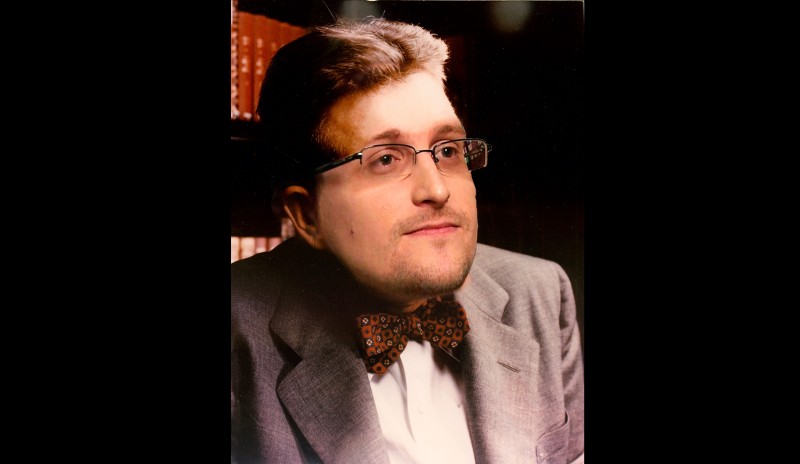
Snowden as the modern day's Alfred Kinsey? Images mixed by author.
Edward Snowden is the Alfred Kinsey of the Internet Age. That is what Russian journalist Dmitri Gubin [1] argued in a blog post [2] last week, imagining what impact governments’ total surveillance might have on future social norms.
Kinsey [3] is best known for his research at the dawn of the 1950s on human sexual behavior, which contributed to a revolution [4] in the West against traditional notions of sexuality. Kinsey achieved his breakthrough by applying rigorous scientific methods to the study of sex, made possible through the collection of a vast amount of data.
In his blog post, Gubin wonders if the Big Data accumulated by governments spying on the Internet, like the NSA’s PRISM [5] program or the FSB’s SORM [6] project, might transform conventional wisdom about new areas of human behavior.
Как часто мы ругаем власть? Материмся? Плачем? Изменяем слову, делу и телу? Напиваемся в хлам? Повышаем голос? Завидуем? Как часто меняем свои взгляды в течение жизни — и нормально ли их менять?
How often do we criticize the authorities? How about swearing? Crying? How often do we go back on our word? On our actions? How often do we drink ourselves into oblivion? What about raising our voices? Envying others? How often do we change our views in a lifetime? Is it normal to change them?
Когда мы получим ответы на эти вопросы, возможно, пересмотрим свои представления о том, что мы есть. А также изменим рамки одобряемого и осуждаемого с точки зрения интересов общества, то есть общественной морали. И ФСБ с его СОРМом, и ФБР, и ЦРУ, и АНБ нам в этом окажутся невольными, но помощниками. Как и все социальные сети, с которых вылетит твит – не поймаешь, паблик черненький не смоешь и платочком не сотрешь, а сотрешь — так есть кэш Гугла и Яндекса, а введут запрет выдавать кэш после требования пользователя — есть еще перепосты и скриншоты.
Ну хорошо, скажете вы, с Фейсбуком и ВКонтакте все ясно. Но как получить интересующую информацию из ФСБ, ФСО и прочих закрытых организаций? Да очень просто! На каждое АНБ и ФСБ найдется свой Сноуден. При таких масштабах работ – не может не найтись.
When we get answers to these questions, it’s possible to reconsider our ideas about who we are. Also, we can change the scope of what is accepted and condemned, from the point of view of society’s interests, that is, from the perspective of public morality. And the FSB with its SORM, along with the FBI, CIA, and NSA, are all unwitting helpers in this process. The same goes for all the social networks. You can’t catch every tweet, you can’t wash the public space clean, and even if you succeed in erasing something, there is always the cache on Google and Yandex. Impose a ban on caches and there will still be reposts and screenshots.
That’s all well and good with Facebook and Vkontakte, you say. But how will we get interesting information from the FSB, FSO, and other closed organizations? Oh, but it’s simple! In every NSA or FSB, you’ll find a Snowden. In such large-scale projects, it’s impossible not to find one.
Using the Internet, government surveillance now peers into corners of our lives that were previously inaccessible to outsiders. By recording our online behavior, the authorities are able to discern patterns in our actions, coming to understand us in ways that we don’t know ourselves. If Kinsey’s study could show that the reality of human behavior is very different from what traditions prescribe, what can PRISM and SORM tell us about “extremism” and “terrorism”? What about the prevalence mocking Vladimir Putin? Indeed, what does the total disintegration of privacy reveal about all kinds of political behavior?